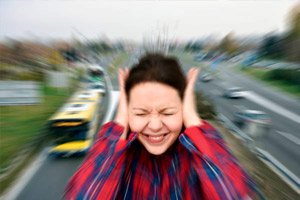
All iLive content is medically reviewed or fact checked to ensure as much factual accuracy as possible.
We have strict sourcing guidelines and only link to reputable media sites, academic research institutions and, whenever possible, medically peer reviewed studies. Note that the numbers in parentheses ([1], [2], etc.) are clickable links to these studies.
If you feel that any of our content is inaccurate, out-of-date, or otherwise questionable, please select it and press Ctrl + Enter.
Traffic noise increases stress and anxiety
Last reviewed: 03.07.2025
 ">
">Artificial sounds, such as traffic noise, can suppress the positive effects of natural sounds on stress and anxiety, according to a study published in the journal PLOS ONE. The study was carried out by Paul Lintott from the University of the West of England and Leah Gilmore from the Bat Conservation Trust (UK).
Natural sounds and their influence
Natural sounds such as birdsong have previously been shown to lower blood pressure, heart rate, and breathing, and to reduce subjective levels of stress and anxiety. At the same time, artificial noises such as traffic or airplane sounds can negatively impact human health and well-being.
How was the study conducted?
68 student volunteers listened to three 3-minute soundscapes:
- A natural soundscape recorded at dawn in West Sussex, UK.
- The same landscape with the addition of traffic noise at 20 mph.
- The same landscape with the noise of traffic at 40 mph.
Before and after listening, participants rated their mood and anxiety levels using special scales.
Key findings
- Natural sounds without interference significantly reduced stress and anxiety, and also helped restore mood after a stressful situation.
- When traffic noise was added, the positive effects of natural sounds decreased. The sounds with traffic moving at 40 mph caused the greatest stress and anxiety.
- The best results in reducing anxiety and stress were shown by a soundscape without transport.
Recommendations
The study's authors note that reducing traffic speeds in cities could not only improve safety, but also improve the impact of natural sounds on the health and well-being of city residents.
"Our study shows that natural sounds can reduce stress and anxiety, but artificial noises such as traffic suppress this effect. Reducing traffic speeds in cities is an important step to ensure that more people experience the positive effects of nature on their health," the authors concluded.
